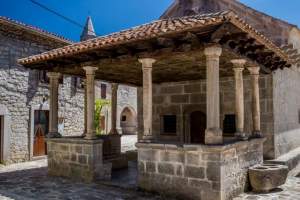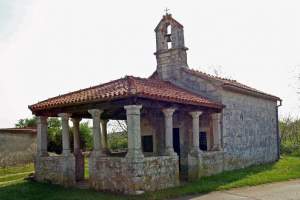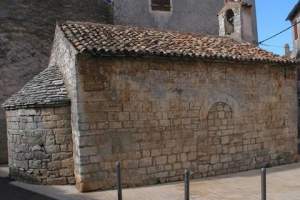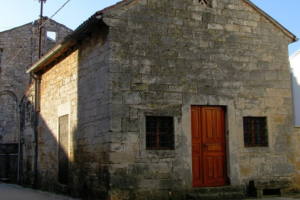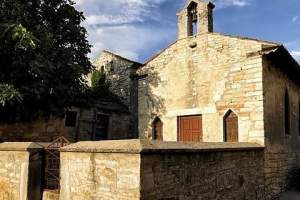The Old Christian Basilica
Next to the Romanesque basilica of St. Mary, in the walled-in backyard, there are remains (foundations and mosaic floor fragments) of the Old Christian basilica dating from the 4th century. Nowadays the remains of the basilica are covered with earth and are not accessible to the public.
This was one of the oldest Old Christian buildings in Istria. First Christians in Vrsar-Orsera (2nd or 3rd century) performed their religious ceremonies presumably in some private houses. The basilica was probably built in the 4th century, after the emperor Constantin the Great (306-337) had by the Milan edict permitted the Christians to profess freely their religion. Fragments of the basilica were excavated in August and September of 1935 by the Italian archaeologist Mario Mirabella Roberti. The basilica had a rectangular ground-plan and resembled the basilicas of the first phase of the Old Christian architecture. The baptistery (baptisterium) was also a part of the basilica, as well as the entrance-hall (nartex) on the west side. In the 6th century the basilica was enlarged by an apse (semicircular recess on the back side). The floor was covered with polychromatic mosaics. The mosaics have been preserved only in fragments, but one can still imagine their artistic entirety. They are decorated with very interesting Old Christian iconography, mostly with floral (leaves, wreaths, baskets with grapes) and animal motifs (fish, peafowls, pigeons).
Images of fish originating from the Istrian sea are proof of the mosaics having been made in some Istrian artistic workshop. On them the four seasons are symbolically represented. The central mosaic field consists of 73 circles connected to each other by tresses. As to their artistic characteristics, the mosaics resemble the ones in the Theodoric's basilica in Aquileia dating from the year 324.During invasions of the Slavs (Croats) to Istria at the beginning of the 7th century the basilica was demolished and a part of it transformed into an olive mill. Archaeological finds include Roman tegulas (tiles), coins, lucernas (lanterns) etc.
By all means, the mosaics should be excavated and presented to tourists and visitors.












